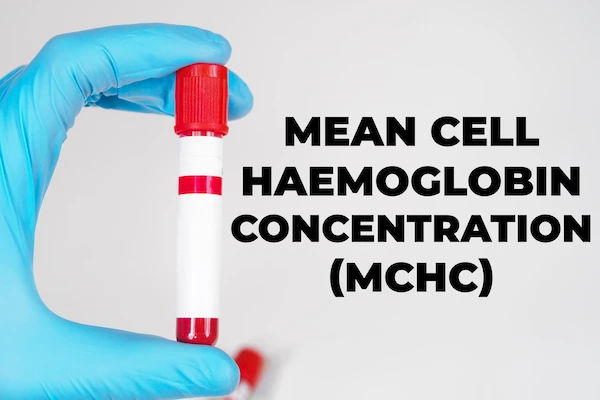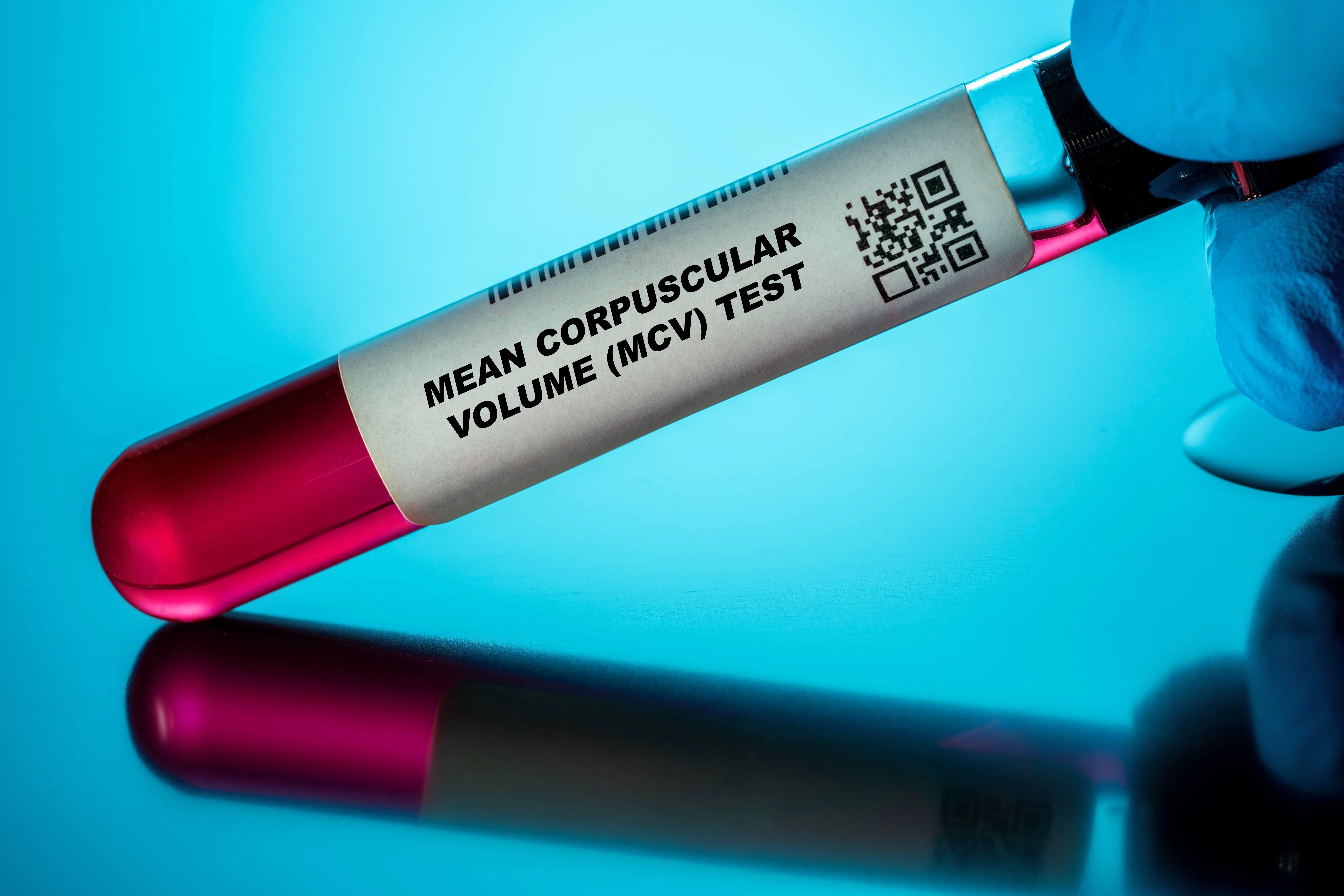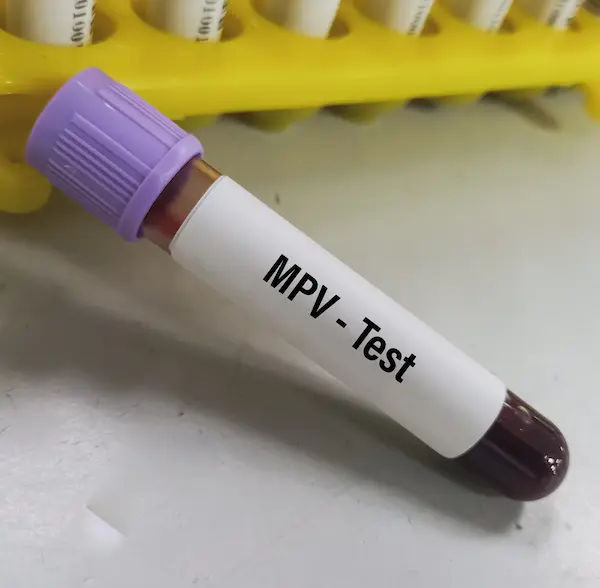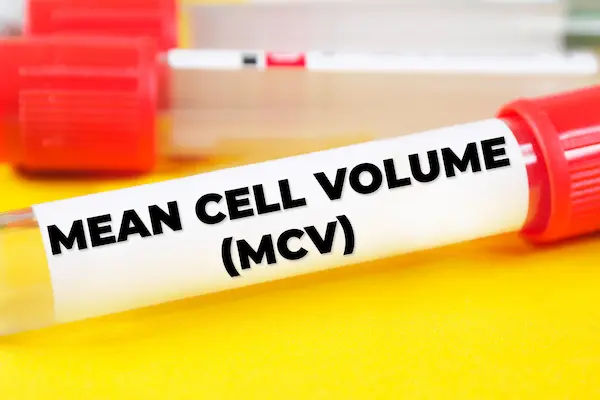Understanding Low MCV in Blood Test
know what low MCV means, common causes, symptoms and how to diagnose low MCV. Learn to manage the low levels of MCV.

Written by Dr. J T Hema Pratima
Reviewed by Dr. Dhankecha Mayank Dineshbhai MBBS
Last updated on 8th Aug, 2025

Introduction
When you get a blood test, you might come across terms like MCV (Mean Corpuscular Volume) in your report. If your MCV is low, it can be confusing and concerning. But don’t worry—this article will help you understand what it means, why it happens, and what you can do about it.
What Is MCV?
MCV stands for Mean Corpuscular Volume, which measures the average size of your red blood cells (RBCs). These cells carry oxygen from your lungs to the rest of your body.
- Normal MCV range: 80–100 femtoliters (fL)
- Low MCV (Microcytosis): Below 80 fL
A low MCV means your red blood cells are smaller than normal, which can affect their ability to transport oxygen efficiently.
Common Causes of Low MCV
Several conditions can lead to low MCV, including:
1. Iron Deficiency Anaemia
- The most common cause.
- Happens when your body doesn’t have enough iron to make healthy red blood cells.
- Causes: Poor diet, blood loss (heavy periods, ulcers), or poor iron absorption.
2. Thalassemia (A Genetic Blood Disorder)
- Affects haemoglobin production, leading to smaller RBCs.
- More common in people of Mediterranean, African, or Southeast Asian descent.
3. Chronic Diseases
- Conditions like kidney disease, infections, or autoimmune disorders can interfere with red blood cell production.
4. Lead Poisoning
- Rare but possible, especially in children exposed to lead-based paints or contaminated water.
5. Vitamin B6 Deficiency
- Less common, but it can affect red blood cell size.
Consult a Top General Physician for advice
Symptoms of Low MCV
If your MCV is low, you might experience:
- Fatigue and weakness
- Pale skin
- Shortness of breath
- Dizziness
- Cold hands and feet
- Brittle nails
These symptoms occur because your body isn’t getting enough oxygen due to smaller or fewer red blood cells.
How Is Low MCV Diagnosed?
Your doctor will review your Complete Blood Count (CBC) test, which includes MCV. If it’s low, they may recommend:
- Iron studies (ferritin, serum iron, TIBC)
- Haemoglobin electrophoresis (to check for thalassemia)
- Vitamin B6 or B12 tests
- Additional tests if chronic disease or lead exposure is suspected
How to Manage Low MCV
Treatment depends on the underlying cause, but here are some general tips:
1. Increase Iron Intake (If Iron Deficiency is the Cause)
- Dietary Sources:
- Red meat, poultry, fish
- Spinach, lentils, beans
- Fortified cereals
- Iron Supplements:
- Only take if prescribed by a doctor (too much iron can be harmful).
- Vitamin C helps with absorption, so pair iron-rich foods with citrus fruits.
2. Manage Thalassemia (If Diagnosed)
- Mild cases may not need treatment.
- Severe cases may require blood transfusions or medication.
3. Treat Underlying Chronic Conditions
- If kidney disease or infections are causing low MCV, managing these conditions can help.
4. Avoid Lead Exposure
- If lead poisoning is suspected, get tested and remove exposure sources.
5. Improve Overall Nutrition
- Eat a balanced diet with enough vitamins (B6, B12, folate) and minerals (iron, copper).
When to See a Doctor
If your blood test shows low MCV and you experience symptoms like fatigue, dizziness, or pale skin, consult a doctor. Early diagnosis and treatment can prevent complications.
Final Thoughts
A low MCV isn’t something to panic about, but it does need attention. With the right diagnosis and treatment, most causes of low MCV can be managed effectively. Eating a healthy diet, following your doctor’s advice, and staying informed will help you stay on top of your health.
Consult a Top General Physician for advice
Consult a Top General Physician for advice

Dr. Jawwad Mohammed Kaleem
General Practitioner
4 Years • MBBS
Hyderabad
Apollo 24|7 Clinic, Hyderabad

Dr. Suraja Nutulapati
General Physician/ Internal Medicine Specialist
10 Years • MBBS, MD (Internal Medicine)
Hyderabad
Apollo 24|7 Clinic, Hyderabad
(975+ Patients)

Dr. Vasanthasree Nair
General Practitioner
15 Years • MBBS
Angamaly
Apollo 24|7 Clinic - Kerala, Angamaly
(525+ Patients)

Dr. Mohammed Kamran
General Practitioner
5 Years • MBBS, FIDM
Nashik
Apollo 24|7 Clinic - Maharashtra, Nashik

Dr. Shesham Srinidhi
General Practitioner
5 Years • MD(physician)
Hyderabad
Apollo 24|7 Clinic, Hyderabad
(150+ Patients)
Consult a Top General Physician for advice

Dr. Jawwad Mohammed Kaleem
General Practitioner
4 Years • MBBS
Hyderabad
Apollo 24|7 Clinic, Hyderabad

Dr. Suraja Nutulapati
General Physician/ Internal Medicine Specialist
10 Years • MBBS, MD (Internal Medicine)
Hyderabad
Apollo 24|7 Clinic, Hyderabad
(975+ Patients)

Dr. Vasanthasree Nair
General Practitioner
15 Years • MBBS
Angamaly
Apollo 24|7 Clinic - Kerala, Angamaly
(525+ Patients)

Dr. Mohammed Kamran
General Practitioner
5 Years • MBBS, FIDM
Nashik
Apollo 24|7 Clinic - Maharashtra, Nashik

Dr. Shesham Srinidhi
General Practitioner
5 Years • MD(physician)
Hyderabad
Apollo 24|7 Clinic, Hyderabad
(150+ Patients)




